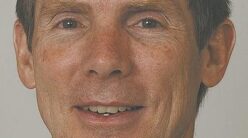By Jeff Hough
In 1984, the Chinese Ping Pong team dominated the Olympics. After winning the gold medal, one of the young champion’s coaches was interviewed for the strategy employed to win the tournament. He told the story of how early in the young champion’s career, they discovered he had a great forehand, but no backhand. Rather than spend time working on improving his backhand, they focused on making his forehand as dominant as possible, by consistently pairing him against opponents who had dominant backhands. This laser-like focus allowed him to make great gains in his performance and excel, despite having such a major flaw in his game.
The debate on whether to turn weaknesses into strengths is not a new one. Many pundits say the most important thing you can do is to shore up your weaknesses so you are a solid, well rounded individual. Others will tell you to stop wasting time on things that don’t set you apart, but strive to develop the unique abilities that make you different. Each side of the argument has value, but I think both opinions miss the real point.
In 2011, Steve Tobak, in an article for CBS Moneywatch, claimed that the real key to success is the ability to understand the importance of discovering what one doesn’t know. In reality, most people aren’t very good at judging their own talents and abilities. Many leaders may think they are doing a great job, but when you talk to those around them, you get a different story. Objectivity is difficult, especially when you put your heart and soul into something. I have worked with many individuals to improve their presentation skills and PowerPoint designs. During the process, I like to paraphrase the Dilbert comic strip, “PowerPoint slides are like children: No matter how ugly they are, you’ll think they’re beautiful, if they’re yours.”
A couple of years ago I worked with a company doing 360 degree evaluations for their management team. For the evaluation, we had managers complete a self-evaluation before we had their co-workers evaluate them. The evaluations came from subordinates, peers and managers and provided a comprehensive view of an individual’s strengths and weaknesses. Frequently, the individual’s self-assessment differed greatly from the opinions of those around them with scores falling above and below their peer rankings.
The takeaway from that experience backs up the statement by Mr. Tobak. If we focus on our strengths—which may not really be our strengths, because we are not really self-aware, we are wasting time and energy. One of my favorite internet videos is the story a young athlete who claims his coach sucks. When asked by a friend why the coach sucks, he provides a long list of reasons, none of which reflect the reality of the situation. One of the most compelling reasons the player gives is that his parents, girlfriend and family tell him that he is great and that he deserves more. The wise friend’s comeback, “They just say that because they are your family and they want to make you feel better,” falls on deaf ears as the player continues to bemoan his fate.
Being self-aware is critical for success in any endeavor. To be truly aware of your strengths and weaknesses gives a competitive edge that few people take advantage of because there may be some pain involved. My challenge to you is to take the time to perform a 360 feedback on yourself. Seek out those whom you can trust to provide honest feedback—find a way for them to provide the feedback anonymously to protect friendships and feelings—then review the findings objectively.
Sun Tzu, in The Art of War counsels, “Keep your friends close, and your enemies closer.” Weaknesses aren’t always flaws to be fixed, but they do need to be understood. Be self-aware and follow Sun Tzu’s advice by keeping your strengths close and your weaknesses closer so you can deal with them effectively.
Jeff Hough is a business author, blogger and speaker in Pocatello.



